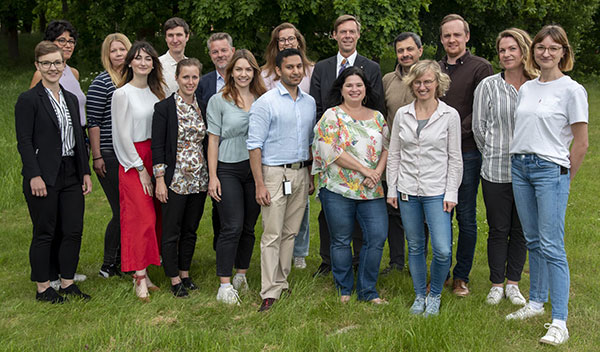Nutrition Gut Brain Axis
About this group
Group information
Contact
Research subject
Research environments
- Nutrition-Gut-Brain Interactions Research Centre (NGBI)
-
Responsive Nutrition Research Centre

The overall aim of our research is to improve gut, metabolic and mental health, based on the paradigm that nutrition, intestinal microbiome, intestinal mucosa, the metabolic system and the brain intensively interact. The group prioritises human models in its research which heavily depend on enrolling patients and healthy subjects in the studies.
The groups works within Nutrition-Gut-Brain Interactions Research Centre
Researchers
Research projects
Active projects
- Comparing the efficacy of encapsulated and non-encapsulated probiotics to affect brain function
- Effect of serotonergic stimulation on the gut-brain axis in irritable bowel syndrome patients compared with healthy subjects applying functional brain imaging
- Establishing a novel gut-brain axis model
- Exploring the probiotic and postbiotic effect of Akkermansia muciniphila on intestinal barrier function in patients with Parkinson's disease - applying Ussing chambers and electron microscopy techniques
- Identification of dietary fibres that promotes butyrate production
- ImprUV+ - An analytical framework to explore the effects of UV during plant growth on human health
- Interaction between dietary protein and fibre fermentation - its functional consequences
- Microbes inside
- Mode of action of butyrate in the human colon
- PAN Protein - plant-based proteins contributing to a healthy and sustainable diet
- POPgut - The impact of persistent organic pollutants exposure on gut health
- The Blue Muffin Study - Impact of gut physiology and function on the formation of bioactive oligomers upon dietary fibre consumption
- The effects of fermentable dietary fibre supplementation on intestinal permeability and inflammation in microscopic colitis
- To determine the butyrate transport capacity in vitro and in tissue samples from healthy individuals and from patients with digestive disorders
- Unpuzzle - Unravelling molecular motifs from dietary fibers responsible for interaction with recognition receptors in human cells
Completed projects
- Compositional analysis of the human gut microbiota along the entire large intestine
- Development of an in vivo butyrate sensor
- Dietary Fibers supporting Gut and Immune Function - from polysaccharide compound to health claim (FibeBiotics)
- Effect of aryl hydrocarbon receptor (AhR) ligands on human colonic intraepithelial lymphocytes
- Effect of the enzyme AN-PEP on gluten degradation in gluten-sensitive individuals
- Faecal microbial transplantation (FMT) in IBS
- Faecal microbiota transfer in microscopic colitis
- Glucocorticoid-enhanced extinction-based exposure therapy in Irritable Bowel Syndrome
- Gluten reaction in children and young adults with cerebral palsy (CP)
- Intervention with Cognitive Behavioral Therapy for subjects with IBS and its effects on visceral perception, abdominal complaints, psychological functioning and gut microbiota
- Microbe-host interactions in post-infectious irritable bowel syndrome (PI-IBS)
- Psycho(bio)logical effects of a probiotic mixture - an fMRI study
- The effect of probiotic supplementation on antibody response against SARS-CoV-2 in healthy adults
- To evaluate anti-oxidative and anti-inflammatory effects of butyrate on the transport of large neutral amino acids such as tryptophan, a precursor of the neurotransmitter serotonin, in in vitro models
Research funding bodies
- The European Society for Clinical Nutrition and Metabolism
- Wageningen University
- Örebro PanSweden
- Örebro Universitys focus area Food and Health










